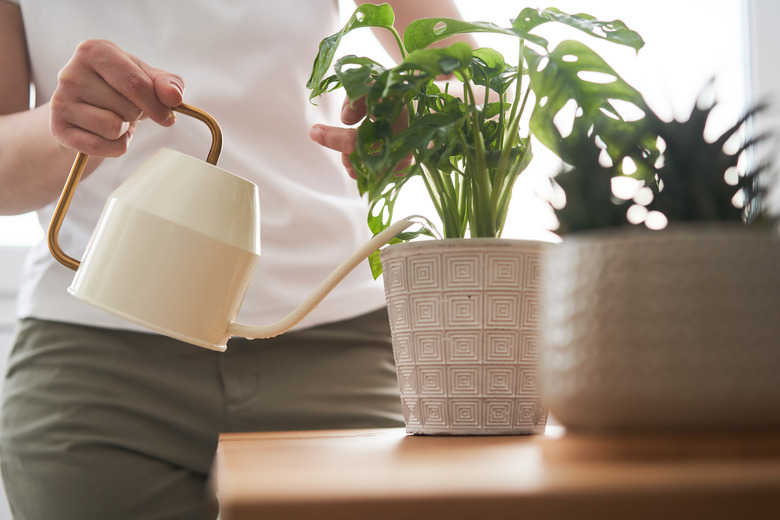Can Plants Grow In Other Liquids Besides Water?
We may receive a commission on purchases made from links.
Water is absolutely the best thing for thirsty plants, but there are a few other liquids that plants can use. Unfortunately, there are also a few liquids that plants simply won't tolerate, so you'll need to tread carefully and pay close attention to your plant's health if you choose to experiment with other liquids.
The Science Behind Plant Needs
The Science Behind Plant Needs
As plants evolved over time, they were forced to adapt to what was available to them, and that was water. Plants developed ways to thrive on the nutrients typically found in water and use them to their advantage. They have specialized in absorbing water all the way down to the molecular level. Because of this, some liquids contain molecules that are shaped too differently from water for the plant to use them.
It's also important to remember that just like you, plants are living organisms that require all things in moderation. Even too much water can cause root rot and kill many plants. A little coffee, for example, may help an acid-loving plant, but too much can be unhealthy. When experimenting with feeding plants different liquids, it's often best to dilute them with a bit of water.
Different Types of Water
Different Types of Water
Many gardeners water both houseplants and outdoor gardens with water straight from the tap. This is usually fine, but some plants may react negatively to the chlorine and other chemicals that come out of the tap. If so, spring water is the next best option. As it bubbles up from underground, spring water soaks up a lot of the nutrients and minerals plants need. You can also use distilled water, but you may need to give the plants a little fertilizer if you do.
If you're environmentally conscious, a rain barrel can collect rainwater you can use to water your plants, which is also quite healthy for them. In a drought situation, you can collect the gray water from your home and use it to water outdoor plants as well. If you do, use rinse water rather than soapy water and use it only on outdoor plants. Potted plants have a much smaller area with which to work and are more susceptible to food debris and other substances that might be in your rinse water.
Sugar, Juice, and Cola
Sugar, Juice, and Cola
A lot of people believe that adding sugar to plant water can give young plants a boost, and this is somewhat true. Too much sugar, however, is bad for the plant and has the opposite effect. While it might be a boon for a little while, eventually, a buildup of sugar prevents the plant from absorbing the nutrients it needs.
If you want to try adding sugar to your plants, do so with sugar water only. Colas and juices are high in sugar but also quite acidic, which is bad for some plants. You can, however, water your plants with club soda. It contains no sugar but does have a few other ingredients that plants can use.
Coffee and Vinegar
Coffee and Vinegar
Gardeners often suggest watering acid-loving plants, like hydrangeas and azaleas, with vinegar or coffee. Both substances are acidic and can change the pH balance of your soil. Check the pH levels first to make sure your acid lovers really need the boost. Azaleas, for instance, like a soil pH of about 5.5. If you're already there, you don't need to add more acid.
If you do need more acid, you can water the plant with coffee or vinegar, but you should dilute them in water. Coffee can also add nitrogen to help leafy plants thrive. Water your plants once a week with coffee diluted in water. Alternatively, mix 1 tablespoon of vinegar into a gallon of water.
Watering With Milk
Watering With Milk
Plants use calcium to help build and support cell walls. According to Washington State University, various studies have shown that spraying a plant's leaves with milk can help prevent certain garden pests and leaf diseases, like powdery mildew. Watering your plants with milk does not seem to have been as extensively studied. There is, however, anecdotal evidence that some plants can grow and even thrive when watered with milk.
If you want to experiment with milk, be mindful of where you do it. Milk doesn't smell good when it goes bad, so you may not want to water plants next to your kitchen or dining room table with it. As with most alternatives, dilute the milk in some water rather than watering with straight milk.
